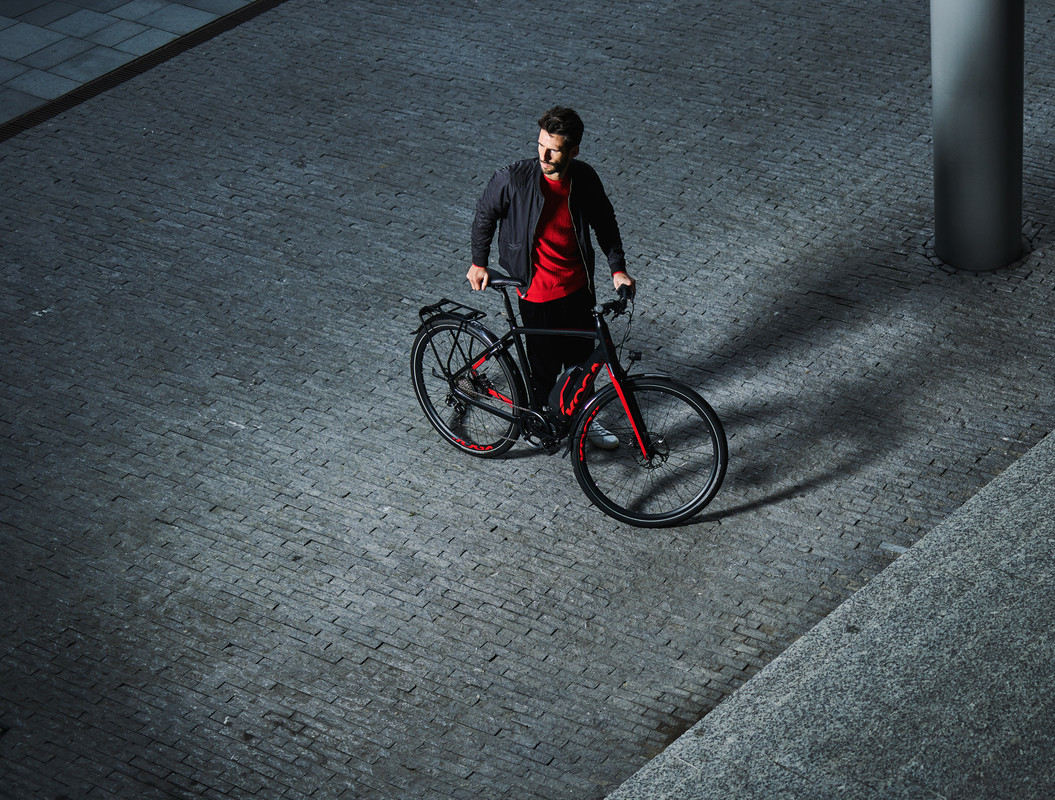The EU cycling advocacy associations in Brussels have united in response to the investigation by the European Commission on the safety risks related to L-category vehicles and new Personal Mobility Devices (PMDs).
CONEBI, CIE, European Cyclists’ Federation (ECF), the European Cycle Logistics Federation (ECLF) and the International Mountain Bike Association Europe (IMBA EU) are combining their efforts to make sure the protection of the booming EU e-bike market and user safety are taken into account in the review.
This review was primarily triggered by EU Member States concerns about new vehicles such as e-scooters and mono-wheels, but it has taken responsibility for a review of all vehicles in this fast-growing micro-mobility segment, including EPACs, speed-EPACs, and cargo bikes.
CONEBI has been leading the industry coordination of the review since it was original discussed by the EU Commission. CONEBI says that there is a high risk that EPACs (25km/h max assistance and 250W continuous rated power) might not be excluded anymore in the future revision of the EU Type Approval regulation. (Reg. EU 168/2013). The other associations joined CONEBI’s campaign because they agree that this possibility must be the focus of a coordinated response by all the associations at EU and national level. They recognize that type approval could add cost and complexity to e-bike supply, while adding considerable risk that governments would impose compulsory helmets, insurance and licensing for using the EPACs.
The main objective is to ensure that the EPAC continues to be considered legally a bicycle, as was already decided by the EU in the early 2000’s, when EPACs were excluded from the type approval framework, developed by the EU in collaboration with CONEBI (Colibi – Coliped), ETRA and ECF.
It is not guaranteed that EPACs will continue to be excluded from the EU Type Approval regulation, despite the correspondence of the bicycle to an EPAC, with concrete detrimental consequences for both the industry and consumers: type-approval would sharply limit the EPAC innovation and design, shrinking the number of models and the choice for EU citizens. That scenario would definitely impact the positive development of the EPAC and Components Industry, including rules on usage.
The review will also provide recommendations whether the current L-category within the type approval regulation is structured in a way to allow for the right balance between vehicle safety and boost to market uptake.
This means that the investigation will try to clarify a number of other outstanding issues in this area. First of all if the current moped category for the SpeedEPAC (cycle designed to pedal up to 45km/h assistance and 4 times the pedalling power) in the EU type approval legislation is suitable: in a recent meeting with the European Commission, CONEBI stated that the current moped category does not seem to be the appropriate one for the SpeedEPAC and that an improvement in that perspective is needed. Secondly, there is also an opportunity to address Cargo Bikes within the legislation.
Thirdly, whether the exclusion from the regulation for off-road vehicles is acceptable. This being an important issue highlighted by IMBA EU which is very concerned about the negative impact of unregulated off-road vehicles when there is constant pressure to maintain mountain bike access to countryside and wild landscapes.
The associations have welcomed the opportunity to look at these wider regulatory developments and are consulting internally about the right proposals. However the associations want to reinforce the message that these additional items must not distract from the most important outcome of this review which is to maintain the situation where EU citizens can buy and ride bicycles and EPACs together as a common bicycle eco-system, on and off-road, protected by the regulations and standards developed by the Industry over the last 100 years for the safety of the consumer. EPACs are representing an important transport solution for millions of European citizens.
TRL (a consultancy engaged by the EU for the investigation) has started meeting relevant stakeholders and released a questionnaire, with deadline October 30th. In case companies want to know more about that, they can contact the CONEBI national association present in their country or the CONEBI secretariat directly.
In addition, the associations are now reaching out to their communities to gather further evidence in view of the whole review, which will be completed by February 2021.

